When Justin Welby sent out the Lambeth 2020 invitations and disinvited the spouses of bishops who are in same-sex marriages, he was attempting a compromise which was typically Anglican: it had nothing to do with right, wrong, truth or lies; what mattered was whose feelings were going to be hurt.
That is because the Anglican church is taking its cues from the society in which it finds itself and the West, having sunk into a slough of aimless post-Christianity, has nothing to rely on but relativism and subjectivity. Equality has emerged from the slime as one of the new gods and, just as socialism’s aim is to make everyone equally impoverished, so the aim of Anglicanism is to make everyone equally aggravated.
Whether same-sex marriage is good, bad, Biblical or unbiblical is not the point; just like the treacly song, what matters is Feelings and not hurting them or, at least, hurting them all equally
From here:
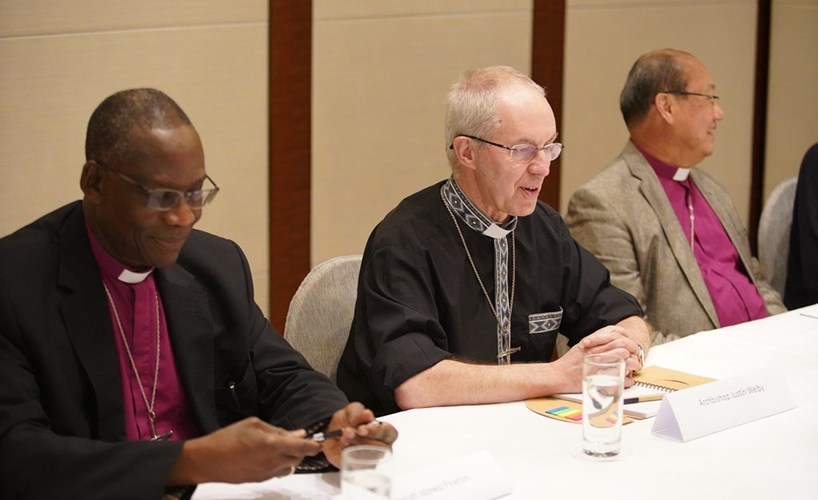 The Archbishop of Canterbury (centre) with the secretary-general of the Anglican Communion, the Rt Revd Dr Josiah Idowu-Fearon, and the chairman of the ACC, the Archbishop of Hong Kong, the Most Revd Paul Kwong
The Archbishop of Canterbury (centre) with the secretary-general of the Anglican Communion, the Rt Revd Dr Josiah Idowu-Fearon, and the chairman of the ACC, the Archbishop of Hong Kong, the Most Revd Paul Kwong
SAME-SEX relationships, the topic that has riven the Anglican Communion for the past two decades, is not officially on the agenda of this week’s meeting of the Anglican Consultative Council (ACC) in Hong Kong.
It is not a topic that can be ignored, however, not least because three provinces — Nigeria, Uganda, and Rwanda — have declined to be represented here because of the involvement of provinces with which they profoundly disagree.
At the opening press conference, on Saturday, the Archbishop of Canterbury spoke again about his dilemma when issuing invitations to the Lambeth Conference next year. He has been under fire for not inviting the partners of bishops in same-sex marriages to join the rest of the spouses at next year’s gathering (News, 22 February).
There are currently two bishops in this position: the Rt Revd Mary Glasspool, Assistant Bishop of New York, and the Rt Revd Kevin Robertson, Suffragan Bishop of Toronto. Next month, they are due to be joined by a third, when the Revd Thomas Brown is consecrated Bishop of Maine.
“It is worth noting that the controversy is not only one way,” Archbishop Welby said. He had received “a considerable number of letters as well” about the fact that he had extended an invitation to bishops who were in same-sex partnerships: a change from 2008, when the Rt Revd Gene Robinson was barred from attending by the Archbishop’s predecessor.
“How we deal with people of different views, from views that are passionately, deeply against any same-sex relations through to people who believe it is a matter of justice . . . and [that] it is injustice not to accept same-sex marriage . . . whichever you’re dealing with, the first rule is: these are people.
“The most painful part, to me, of the decisions that have to be made, is that I know that, at every moment that I write a letter or make a decision, I am making a decision about people — and that there is no decision that will result in nobody getting hurt.
“If I’d decided differently on the decision about same-sex spouses — and it hurt a lot of people, by the way — I would have hurt a huge number of people elsewhere in the Communion. And there wasn’t a nice solution which I looked and thought, ‘Nah, I don’t want to do that, I’ll take the nasty solution.’ It’s not as simple as that.”
Like this:
Like Loading...
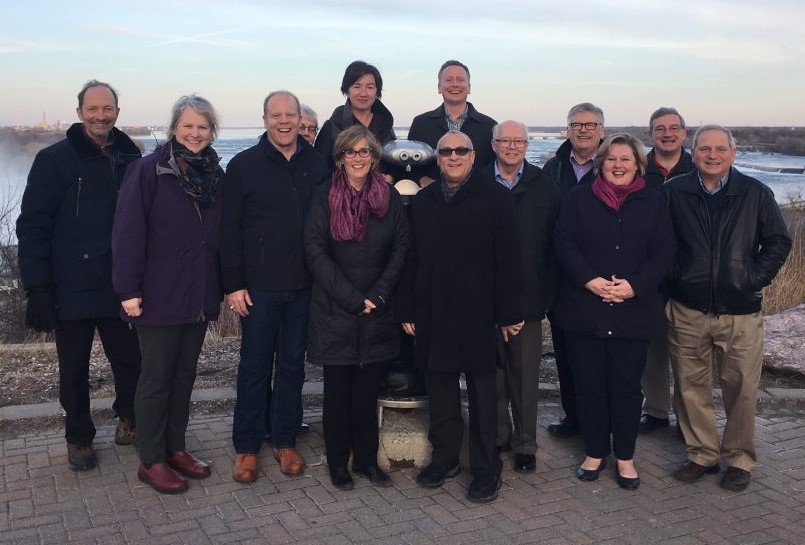

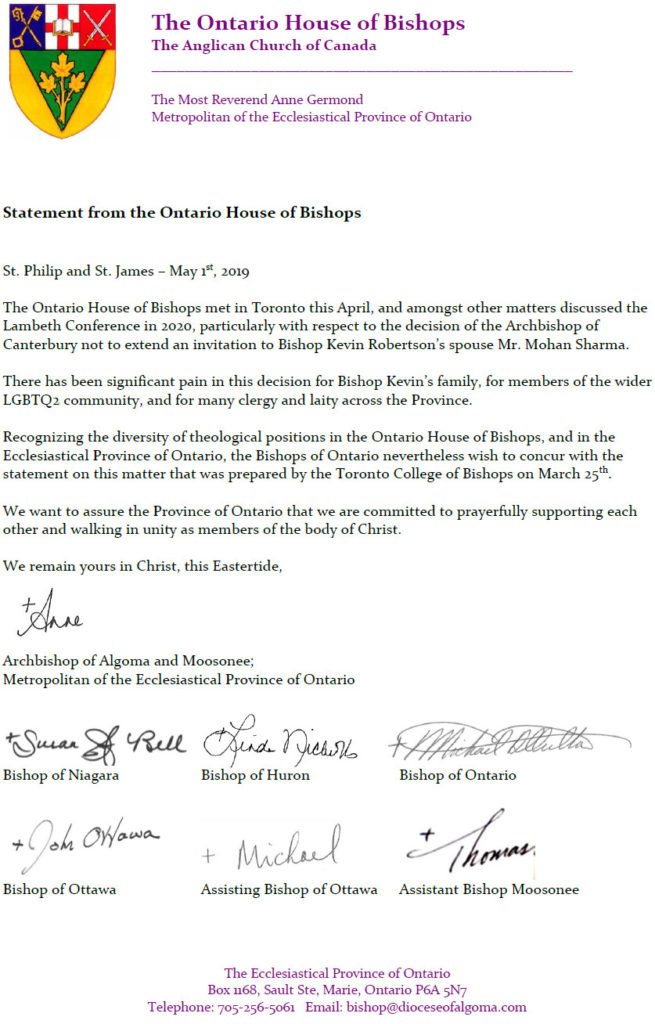

 The Archbishop of Canterbury (centre) with the secretary-general of the Anglican Communion, the Rt Revd Dr Josiah Idowu-Fearon, and the chairman of the ACC, the Archbishop of Hong Kong, the Most Revd Paul Kwong
The Archbishop of Canterbury (centre) with the secretary-general of the Anglican Communion, the Rt Revd Dr Josiah Idowu-Fearon, and the chairman of the ACC, the Archbishop of Hong Kong, the Most Revd Paul Kwong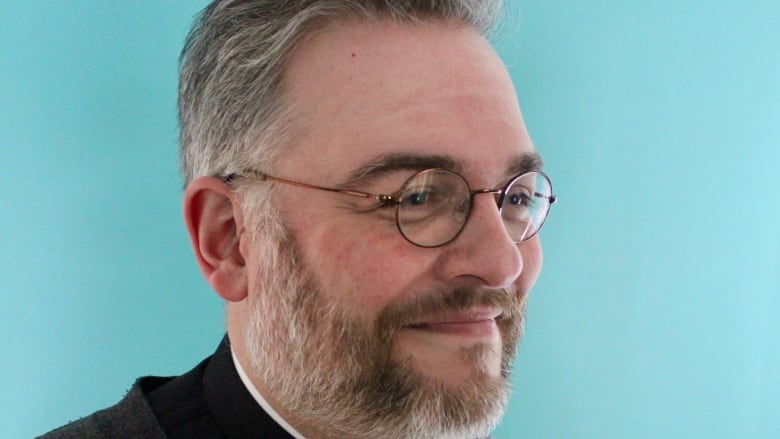 One Anglican parish in St. John’s is ready to allow same-sex couples to get married under its roof — but is caught in the middle of a waiting game.
One Anglican parish in St. John’s is ready to allow same-sex couples to get married under its roof — but is caught in the middle of a waiting game.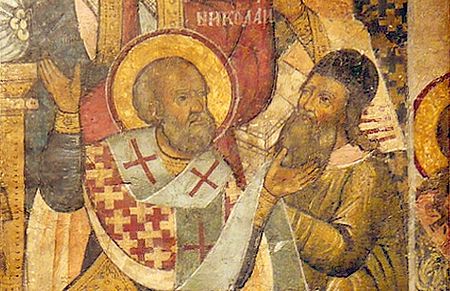
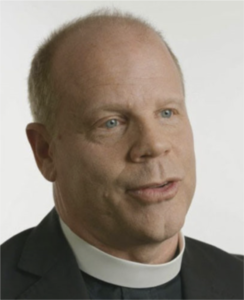 Bishops report on Marriage Canon Dialogue conversations
Bishops report on Marriage Canon Dialogue conversations